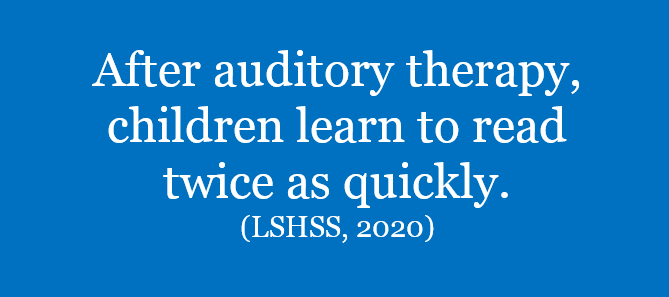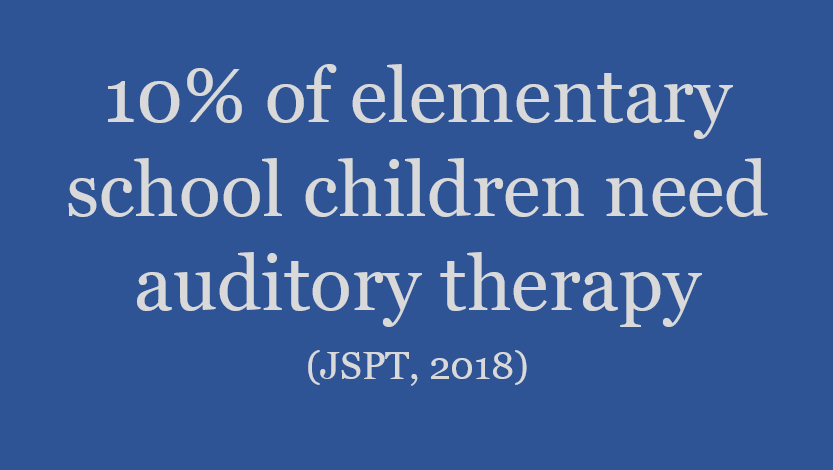What is auditory processing specifically?
Auditory processing, in its strictest sense, is the processing of auditory information going between the inner ear up to the primary auditory cortex, the pathways in the brain PRIOR to our Receptive Language center (i.e., Wernicke’s area). There are a wide variety of skills processed on this pathway. Some examples include localizing where a sound is coming from, determining fundamental aspects of speech information (changes in pitch and volume), processing sound equally from both ears, and following patterns of sound.
Most professions around the world, such as AAA and ASHA have a comprehensive list of which skills are included within Auditory Processing Specifically.
Does auditory processing have real world impacts?
YES. Auditory processing is an area that hasn’t been well understood regarding its impact for several decades. The profession has noted associations with (i.e., correlations) listeners who processing auditory information poorly and language and reading abilities. However, recently we have been able to prove with reasonable certainty, that a significant auditory processing deficit will cause delays in language, and further, reading. This shouldn’t be surprising as it is common knowledge that reading is nothing more than language that has been written down. And it is also well known one must be able to hear and process information to learn a language.
Can auditory processing be improved and does that help with language and reading?
YES! Thankfully, the human brain is able to be altered and trained with intervention. This includes auditory processing abilities. There are a variety of auditory processing abilities that a professional can measure and some of them appear to be more important than others for good educational outcomes.
There have been successful training programs documented for quite a few decades but even more information has surfaced recently. Most recently, auditory processing therapy has allowed for students to gain nearly a year of equivalent reading age compared to a control group. This was true for two primary types of auditory processing skills. One was for dichotic listening and the second was for following auditory (non-linguistic) patterns.
There were 10 months between pre-testing and post-testing. All three groups were receiving a type of auditory therapy as well as direct reading intervention. The control group only developed by 10 months, meaning they were progressing at the same rate as the amount of time that passed. The dichotic listening therapy group progressed in their reading by 17.5 months, and the auditory patterning group progressed in their reading by 20 months. (LSHSS, 2020)

How many listeners are affected by a significant auditory processing deficit?
Many more than we anticipated! In the elementary/primary school population more than 10% of students could benefit from an auditory therapy, allowing them to progress in learning language and reading up to twice as quickly. The reverse is also true, in that more than 10% of this population will be restricted in their language and reading development if they are not allowed access to an appropriate auditory therapy.

Can I learn more?
Acoustic Pioneer has online training available – see our link on this page or contact us at info@acousticpioneer.com for more information. This is for appropriate professionals for details on auditory processing and the science behind our programs. Can anyone access the auditory processing programs? Professional access is granted to Audiologists, Speech and Language pathologists, and Educational Psychologists.
When you sign up, we will validate your professional status prior to access being allowed. Teachers and Parents can ask a single question to determine if further investigation is warranted. That question would be the following: "Does this student struggle with classroom learning, reading, and/or language development?" - and if the answer is yes, then there is over an 80% chance that they will have an auditory processing deficit in a key auditory processing area. So if you know someone who is struggling, please follow up with a professional for more investigation. If you are having difficulty getting in touch with a professional, please contact us.
Can anyone access the auditory processing programs?
Professional access is granted to Audiologists, Speech and Language pathologists, and Educational Psychologists. When you sign up, we will validate your professional status prior to access being allowed. Teachers and Parents will need to work with a professional for having an auditory processing assessment administered. If you are having difficulty getting in touch with a professional, please contact us.
